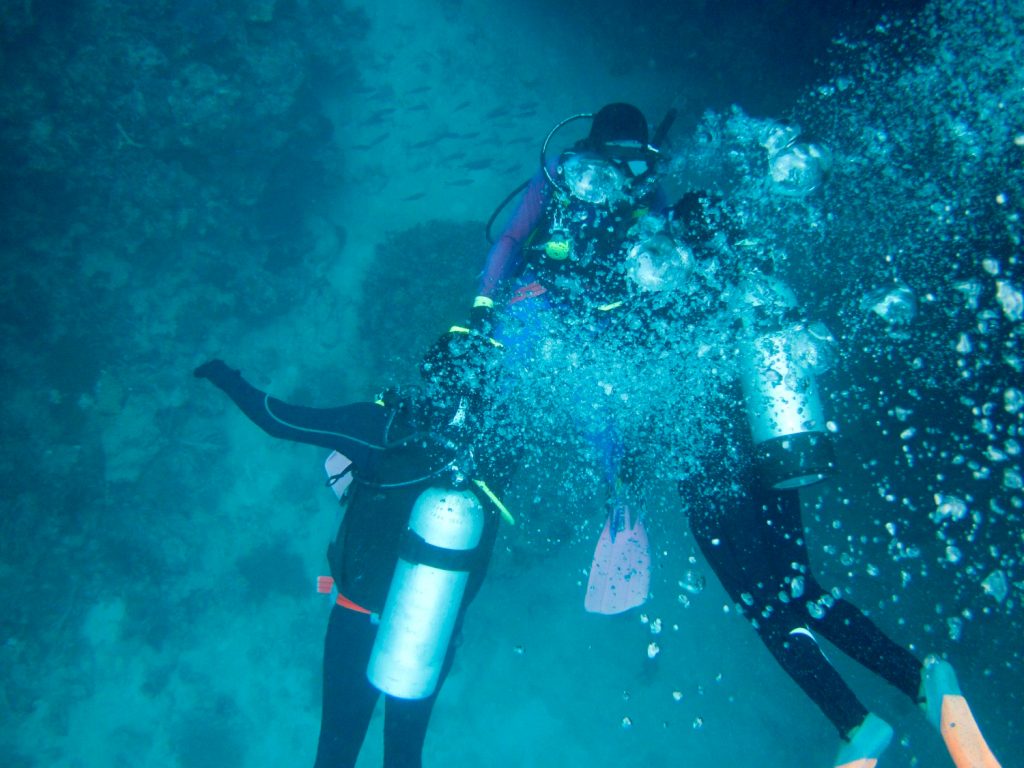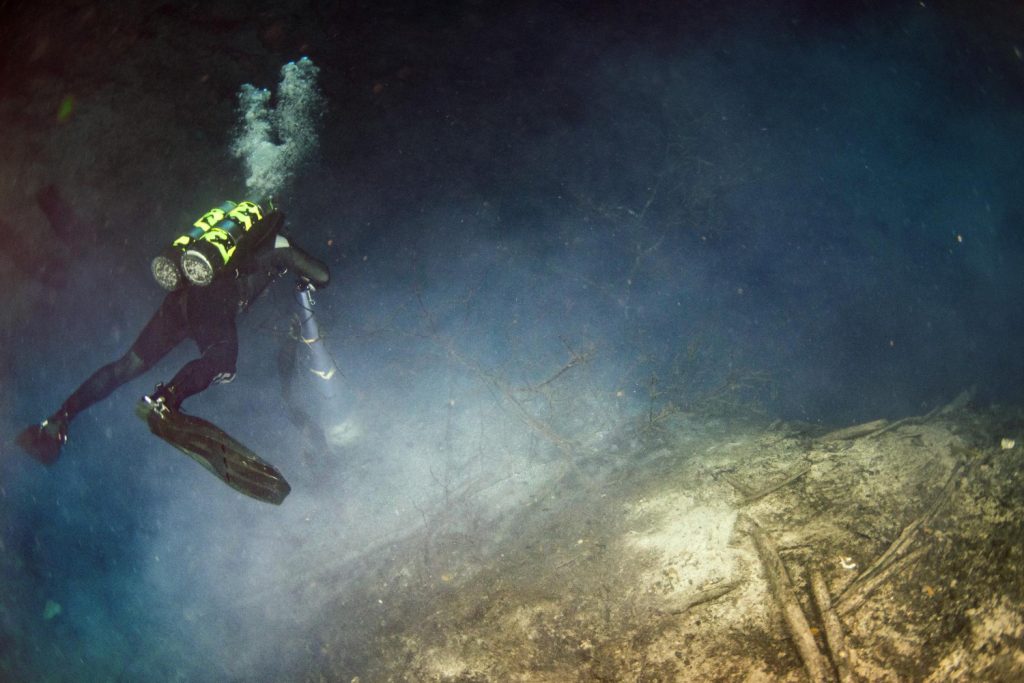The Deep Diving course is a specialization that prepares divers for safely exploring greater depths—up to a maximum of 40 meters (according to the standards of most diving organizations). Diving at greater depths requires additional knowledge and skills due to the specific hazards and physiological changes that occur with increasing depth.

What can you learn in the PADI Deep diving course?
1. Deep Dive Planning: How to properly plan dives at greater depths, taking into account bottom time, safety stops, no-decompression limits, and air consumption management.
2. Physiological Changes: Understanding how depth affects the diver’s body, including issues related to nitrogen narcosis, increased air consumption, and ambient pressure.
3. Equipment Management: How to configure equipment for deep dives, including how to use additional gear, such as decompression gas cylinders (if necessary), and how to manage gas supplies.
4. Emergency Procedures: How to handle emergency situations at greater depths, including pressure problems, air shortages, or decompression issues.
5. Using Descent Lines and Buoys: How to use a descent line to control descending and ascending, and how to safely use a buoy during surfacing in deep water.
The PADI Deep diving course structure:
1. Theoretical Part: The course begins with learning the theory related to deep diving, including principles of safe dive planning, risks associated with depth, and equipment management.
2. Open Water Practice: The PADI Deep diving course typically includes four dives, each at different depths, to gradually increase participants’ experience. During these dives, divers learn to control their descent, manage air consumption, perform safety stops, and respond to potential technical issues.
Prerequisites:
Participants must have an Advanced Open Water Diver certification (or equivalent) and a logged number of open water dives.

Benefits of completing the course:
1. Extended Depth Range:
The Deep diving course allows diving to a maximum depth of 40 meters (130 feet), opening access to deeper dive sites such as wrecks, rock walls, reefs, and unique geological formations.
2. Increased Confidence at Depths:
The Deep Diving course prepares divers for safe and conscious diving beyond standard limits, building confidence in more challenging conditions.
3. Better Understanding of Depth Effects on the Body:
Diving at greater depths involves various physiological changes, such as increased air consumption and the effects of nitrogen narcosis. The Deep diving Mallorca course teaches how to recognize and manage these effects, enhancing your safety underwater.
4. Mastery of Advanced Dive Planning Techniques:
The PADI Deep diving Mallorca course emphasizes deep dive planning, taking into account factors such as bottom time, air consumption, decompression, and planned safety stops. This prepares divers for more complex and demanding dives.
5. Greater Awareness of Equipment Maintenance:
At greater depths, diving equipment is subjected to greater stress. The Deep diving Mallorca course teaches how to properly prepare and check equipment before deep diving, minimizing the risk of failure.
6. Increased Exploration Opportunities:
With the PADI Deep diving Mallorca course, you gain access to deeper dive sites, including wrecks, rare geological formations, and marine species that inhabit greater depths, making diving more exciting and diverse.
7. Career Development in Diving:
Having a Deep Diver certification can be an asset for diving instructors and guides working in areas that require deep water diving. This course is often a prerequisite for more advanced diving specializations and technical training.
8. Better Understanding of Decompression Principles:
In the PADI Deep diving course, you learn how to avoid decompression sickness by understanding how bottom time and depth affect the elimination of gases from the body. This preparation is crucial for maintaining safety during deep dives.
9. Opportunity to Participate in Advanced Diving Expeditions:
Deep diving is often part of special diving expeditions, such as exploring deep wrecks, caves, or unique natural sites accessible only to divers with the appropriate experience and certification.
10. Increased Environmental Awareness:
Deep diving Mallorca allow for the observation of unique marine species and phenomena not visible at shallower depths. This enhances your knowledge of marine ecosystems and their conservation.
The PADI Deep diving Mallorca course is an ideal option for those looking to fully utilize their diving potential, gaining access to deeper and more demanding sites while enhancing their technical skills and safety.
